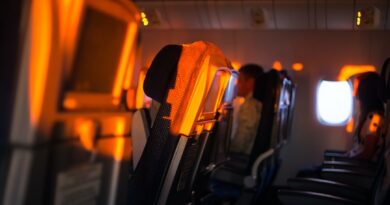Does EU Regulation 261/2004 apply to all airlines and all flights?
The European Union (EU) Regulation 261/2004 is a law that sets out the rights of passengers when their flights are delayed, cancelled, or overbooked. The regulation applies to all airlines operating flights departing from airports within the EU, as well as those arriving in the EU from a non-EU country. The regulation also applies to all flights, regardless of whether they are domestic or international.
The purpose of the regulation is to ensure that passengers are treated fairly and receive appropriate compensation for any inconvenience caused by a flight delay or cancellation. The regulation applies to all passengers, regardless of their nationality or the airline they are travelling with. It also applies to passengers who have purchased tickets through a travel agent or tour operator.
Under the regulation, passengers are entitled to certain rights when their flights are delayed, cancelled, or overbooked. These rights include:
• Compensation for the inconvenience caused by the delay or cancellation
• Assistance in the form of meals, refreshments, and accommodation, if necessary
• The right to be re-routed to their final destination, if the original flight is cancelled
• The right to reimbursement for any additional costs incurred as a result of the delay or cancellation
• The right to compensation for any losses suffered due to the delay or cancellation
The amount of compensation that passengers are entitled to depends on the length of the delay and the distance of the flight. For flights of up to 1,500 kilometres, passengers are entitled to €250 in compensation for a delay of more than three hours. For flights of more than 1,500 kilometres, passengers are entitled to €400 in compensation for a delay of more than three hours.
In addition to the rights outlined above, the regulation also sets out certain obligations for airlines. These include the obligation to provide passengers with information about their rights, as well as the obligation to provide assistance to passengers in the event of a delay or cancellation.
It is important to note that the regulation does not apply to all airlines and all flights. In particular, the regulation does not apply to flights operated by airlines based outside the EU, nor does it apply to flights operated by airlines based in the EU but departing from airports outside the EU.
In conclusion, the EU Regulation 261/2004 does apply to all airlines operating flights departing from airports within the EU, as well as those arriving in the EU from a non-EU country. The regulation also applies to all flights, regardless of whether they are domestic or international. The regulation sets out the rights of passengers when their flights are delayed, cancelled, or overbooked, as well as certain obligations for airlines. However, the regulation does not apply to all airlines and all flights, as it does not apply to flights operated by airlines based outside the EU, nor does it apply to flights operated by airlines based in the EU but departing from airports outside the EU.
Does EU Regulation 261/2004 Apply to All Airlines and All Flights?
The European Union (EU) Regulation 261/2004 is a law that provides air passengers with rights and protection when they experience flight delays, cancellations, or denied boarding. The regulation applies to all airlines that fly from, to, or within the EU, as well as all flights operated by EU airlines, regardless of their origin or destination.
The regulation was passed in 2004 in response to the increasing number of flight delays and cancellations that were occurring in the EU. The regulation sets out the rights of passengers in the event of flight disruptions, including compensation for flight delays, cancellations, and denied boarding. The regulation also sets out the obligations of airlines to provide passengers with assistance in the event of flight disruptions.
In order to determine whether EU Regulation 261/2004 applies to a particular airline or flight, it is important to consider the origin and destination of the flight. If the flight is operated by an EU airline, or if the flight is departing from, arriving at, or travelling within the EU, then the regulation applies. This includes flights operated by non-EU airlines that are travelling to or from an EU airport.
It is also important to consider the type of flight. The regulation applies to all scheduled flights, as well as charter flights, but does not apply to private flights or cargo flights.
When it comes to determining whether a particular airline is subject to the regulation, it is important to consider the airline’s nationality. The regulation applies to all airlines that are based in the EU, as well as airlines that are based outside of the EU but are operating flights to, from, or within the EU.
Finally, it is important to consider the type of disruption that has occurred. The regulation applies to all flight disruptions, including delays, cancellations, and denied boarding. However, the regulation does not apply to disruptions caused by extraordinary circumstances, such as extreme weather conditions or political unrest.
In summary, EU Regulation 261/2004 applies to all airlines that fly from, to, or within the EU, as well as all flights operated by EU airlines, regardless of their origin or destination. The regulation also applies to all scheduled flights, as well as charter flights, but does not apply to private flights or cargo flights. Finally, the regulation applies to all flight disruptions, including delays, cancellations, and denied boarding, but does not apply to disruptions caused by extraordinary circumstances.




